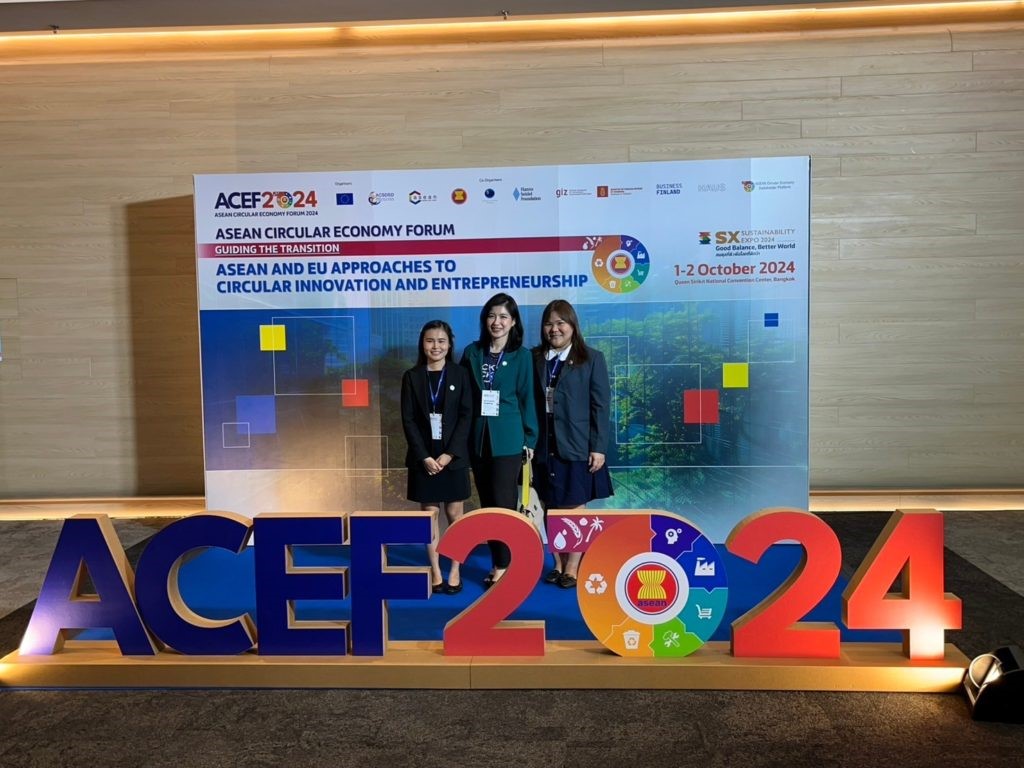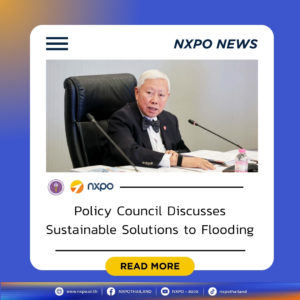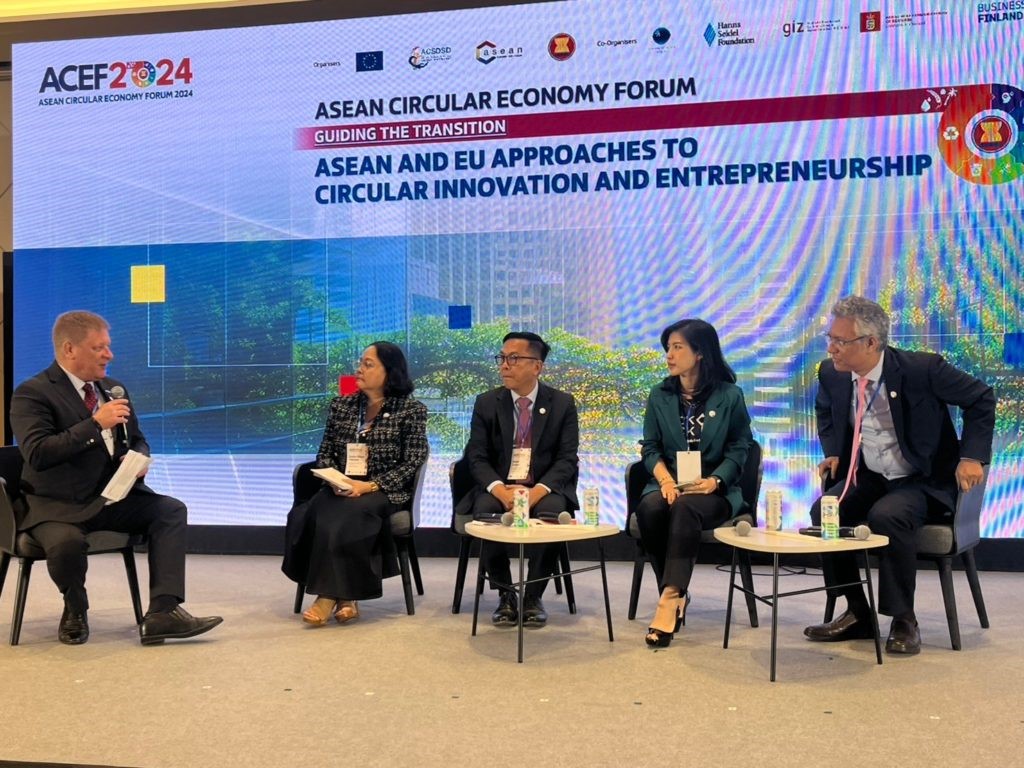
MHESI-NXPO participated in the ASEAN Circular Economy Forum 2024 (ACEF2024), held on 1-2 October 2024 at the Queen Sirikit National Convention Center as part of the Sustainability Expo 2024. Representing NXPO, Dr. Saravanee Singtong, Director of the Sustainability Policy Division, joined a panel discussion on “Circular Economy in ASEAN – Harnessing the Potential of Regional Integration and Cooperation” on 2 October.
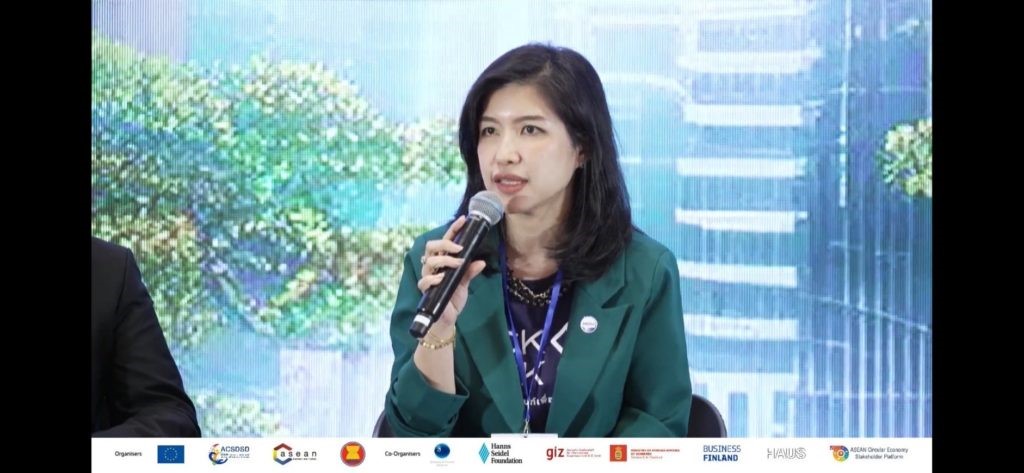
ACEF2024 was co-organized by the ASEAN Centre for Sustainable Development Studies and Dialogue (ACSDSD), C asean, Sustainability Expo, and the Enhanced Regional EU-ASEAN Dialogue Instrument (E-READI), with support from the Hanns Seidel Foundation, Finland (under the Team Europe Initiative / TEI), and EU stakeholders under the Green Team Europe Initiative (GIZ Projects, Denmark, TAF GTEI). The forum convened ASEAN and EU stakeholders to exchange experiences on how science, technology, and innovation (STI) policies can engage the private sector in transitioning to a circular economy. Key topics included financing, capacity development, technical standards, enterprise support, and public-private research collaboration.
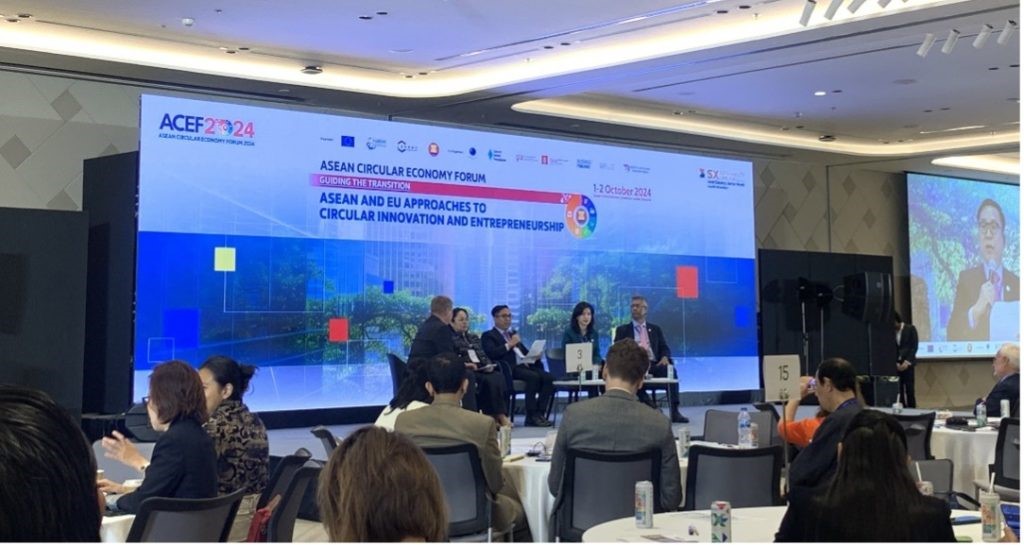
During the panel, discussions centered on ASEAN-level circular economy initiatives aimed at accelerating circular policies and practices at national and local levels. Dr. Saravanee was joined by distinguished panelists, including Ms. Junie Lutian (India & SEA General Secretary at Danone, Malaysia), Mr. Sudip Ranjan Basu (Chief of the Sustainable Business Network at UNESCAP, Thailand), Ms. Evelyn B. Taboada (representing Circular Economy TVET for the private and informal sectors, Philippines), and Mr. Chris Humphrey (Executive Director of the EU-ASEAN Business Council, Singapore).
Dr. Saravanee highlighted NXPO’s role as a policy agency in cultivating a dynamic ecosystem to foster innovation and facilitate multi-stakeholder collaboration in the circular economy. Pilot projects launched through this ecosystem serve as models for national expansion. This innovation ecosystem for Thailand’s circular economy has been outlined in the White Paper on Circular Economy Innovation Ecosystem: Vision 2030. She stressed the importance of prioritizing high-impact areas to accelerate the circular transition, noting that several ASEAN countries have developed tools like circular economy laws and Extended Producer Responsibility (EPR) systems.
In Thailand, while the private sector has been proactive in advancing the circular economy, micro, small, and medium-sized enterprises (MSMEs) still require more support, particularly in transition strategies and supply chain integration. To address these challenges, NXPO, in partnership with the Thai Industrial Standards Institute (TISI), the Federation of Thai Industries (FTI), the Office of SMEs Promotion (OSMEP), and the Management System Certification Institute (Thailand), developed the Green Enterprise Indicator (GEI) based on data compiled in collaboration with OSMEP and 1,400 MSMEs. GEI helps businesses access to financial resources and government incentives for circular transition initiatives. Furthermore, NXPO, in collaboration with the Thailand Institute of Scientific and Technological Research (TISTR) and Saraburi province, is also advancing the circular economy through the Saraburi Sandbox initiative. Dr. Saravanee concluded her presentation by emphasizing the significant potential for ASEAN countries to work together to drive the circular transition across the region.
